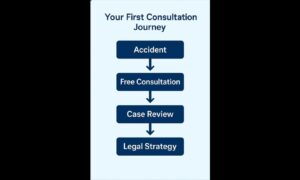In any organization, there may come a time when your team needs more support to meet their goals, overcome challenges, and achieve success. Recognizing when your team requires additional assistance and taking proactive steps to provide that support is essential for maintaining productivity, morale, and overall team satisfaction. If you notice that your team needs more support, learn these top tips for how to handle it.
-
Communicate Openly
The first step in addressing your team’s need for support is to create an open and transparent line of communication. Encourage team members to share their concerns, challenges, and suggestions freely. Active listening and empathy are crucial during these conversations to understand their needs fully.
-
Assess the Situation
Take time to assess the current state of your team and the specific areas where they require additional support. Consider factors such as workload, deadlines, available resources, and any external challenges that may be affecting their performance.
-
Provide Additional Resources
If your team is stretched thin or lacks essential tools, consider providing additional resources. This may include hiring new team members, outsourcing specific tasks, or investing in updated technology and equipment to enhance productivity. If your team is stretched too thin to be able to dedicate all their time to creating your required software, reach out to custom software development solutions.
-
Offer Training and Development
Sometimes, teams need support in the form of training and development to enhance their skills and knowledge. Identify areas where additional training can benefit your team and provide opportunities for learning and skill-building.
-
Adjust Workload and Priorities
Review the workload and priorities of your team to ensure they are manageable and aligned with their capabilities and capacity. Adjustments may be necessary to prevent burnout and maintain a healthy work-life balance.
-
Delegate and Empower
Empower team members by delegating tasks and responsibilities that align with their strengths and expertise. Delegation not only lightens the workload but also fosters a sense of ownership and motivation.
-
Recognize and Reward
Acknowledge and reward your team’s efforts and achievements. Recognition can boost morale and motivation, making your team more resilient and better equipped to tackle challenges.
-
Remove Barriers
Identify and eliminate any barriers or obstacles that hinder your team’s performance. This may involve addressing interdepartmental conflicts, streamlining processes, or improving communication channels.
-
Seek External Expertise
In some cases, your team may require external expertise to address specific challenges or projects. Consider bringing in consultants, mentors, or industry experts who can provide guidance and support.
-
Monitor Progress
Regularly assess the impact of the support measures you’ve implemented. Monitor key performance indicators, gather feedback from team members, and make necessary adjustments to continue providing effective support.
In conclusion, recognizing when your team needs more support and taking proactive steps to address their needs is essential for maintaining a productive and motivated workforce. By fostering open communication, providing necessary resources, and creating a supportive and empowering environment, you can ensure that your team can overcome challenges, achieve their goals, and thrive in their roles. Supporting your team effectively not only benefits their well-being but also contributes to the overall success and growth of your organization.



































